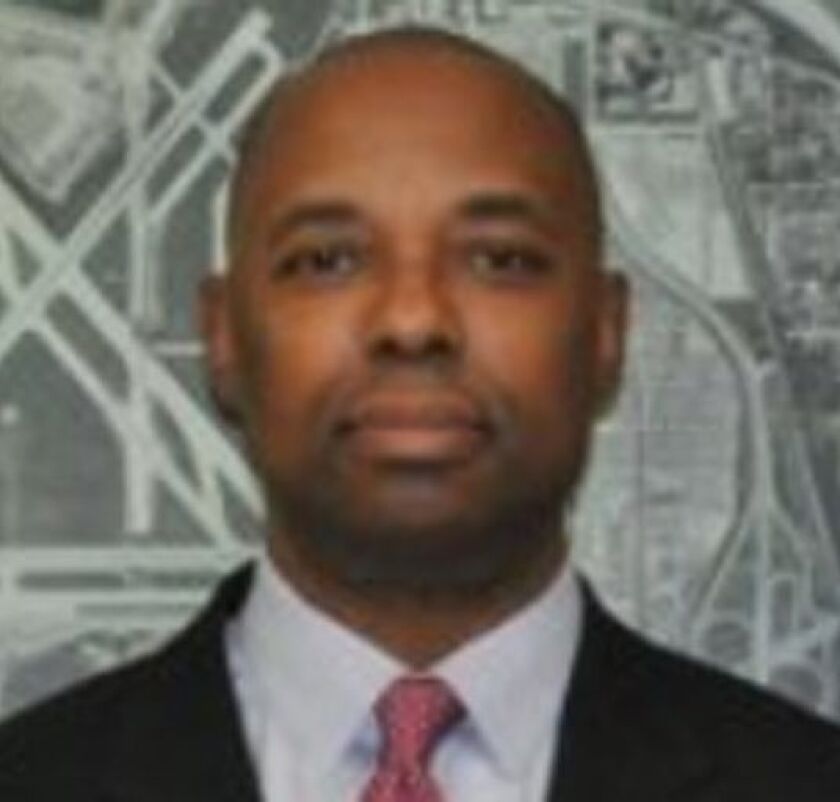Four of Chicago’s top airport security jobs are now vacant — a void that raises even more questions about the state of security at O’Hare and Midway airports.
The high-level vacancies include Jeff Redding, who was fired last week; two deputies who’d been working under him; and the managing deputy commissioner of security who was supposed to be Redding’s boss, City Hall sources said Monday.
Aviation Commissioner Ginger Evans has told associates the vacancies are hampering her ability to investigate the April 9 passenger-dragging incident involving Dr. David Dao. She has also complained that, in some cases, the salaries for the jobs are too low to lure top talent away from other major airports.
It’s unclear how long the other three jobs besides Redding’s have been vacant. Regardless, the dearth of employees in those roles comes amid concerns about evolving role of the city’s $19 million-a-year, 292-employee strong force of unarmed aviation security officers, also known as the aviation “special police.”
Aviation Department spokeswoman Lauren Huffman was asked how the city can guarantee airport safety with four high-level security vacancies.
“Commissioner Evans’ review of the security apparatus, and any personnel changes, are all being done to enhance and improve security at Chicago’s airports,” Huffman wrote in an email.
Huffman noted the Department of Aviation maintains a “multi-layered approach” to security that includes the Chicago Police Department as “the designated armed law-enforcement authority,” the Chicago Fire Department, the unarmed aviation security officers, the Transportation Security Administration, U.S. Customs and Border Protection and the FBI.
“Those procedures will continue to be carried out at O’Hare and Midway International Airports under the leadership of Kevin Zator [who replaced Redding]. The CDA has been and continues to actively recruit additional senior leadership in security,” she wrote.
Redding had been under scrutiny ever since three of his aviation security officers boarded a United Express jet April 9 and dragged a bloodied and flailing Dao down the aisle for failing to give up his seat to a United crew member.
But Redding’s firing had nothing to do with the viral video that has damaged Chicago’s reputation as a travel destination. Instead, sources said the firing stemmed from Redding’s failure to fully disclose the circumstances surrounding his firing from the Illinois Tollway six months before he was hired.
Redding’s firing still leaves open the larger question about whether the city’s unarmed aviation security police will continue to exist under Mayor Rahm Emanuel’s tenure. Sources said that question has yet to be resolved and will be complicated by opposition from the Service Employees Union Local 73, which represents the 292 officers.
On Thursday, Evans will be before a U.S. Senate committee investigating the passenger-dragging incident.
In preparation for that testimony, she responded to three questions posed by Senate leaders and forwarded to them copies of a policy manual for aviation police officers revised in May 2002 that still applies to their actions. She also revealed that a fourth aviation security officer has been disciplined in the incident.
The manual seems to contradict the commissioner’s orders to strip the word “police” from their badges, vehicles and uniforms.
“Aviation Special Police Officers will be state-certified law enforcement officers. They will . . . have the authority to make arrests while enforcing state laws and city of Chicago ordinances as specified by the managing deputy commissioner, security while on Department of Aviation property,” the manual states. “Special police will possess all of the powers of the regular police patrol at the places for which they are respectively appointed or the line of duty for which they are employed.”
The manual’s use-of-force policy also raises questions about what, if any, policy that the four officers now on paid administrative leave for dragging Dao off Flight 3411 may have violated. Aviation police officers are “permitted to use only the minimum force necessary to control a situation, detain a suspect and/or prevent the unauthorized entry of persons into restricted areas,” it states.
But the use-of-force policy also states that the amount of force used by aviation special police on a suspect “should be sufficient to meet and overcome the resistance being offered by the suspect.” In emails, police reports and other records released by the city last week, the accused aviation police officers described Dao as combative and said they used “minimal but necessary force” to subdue him.






